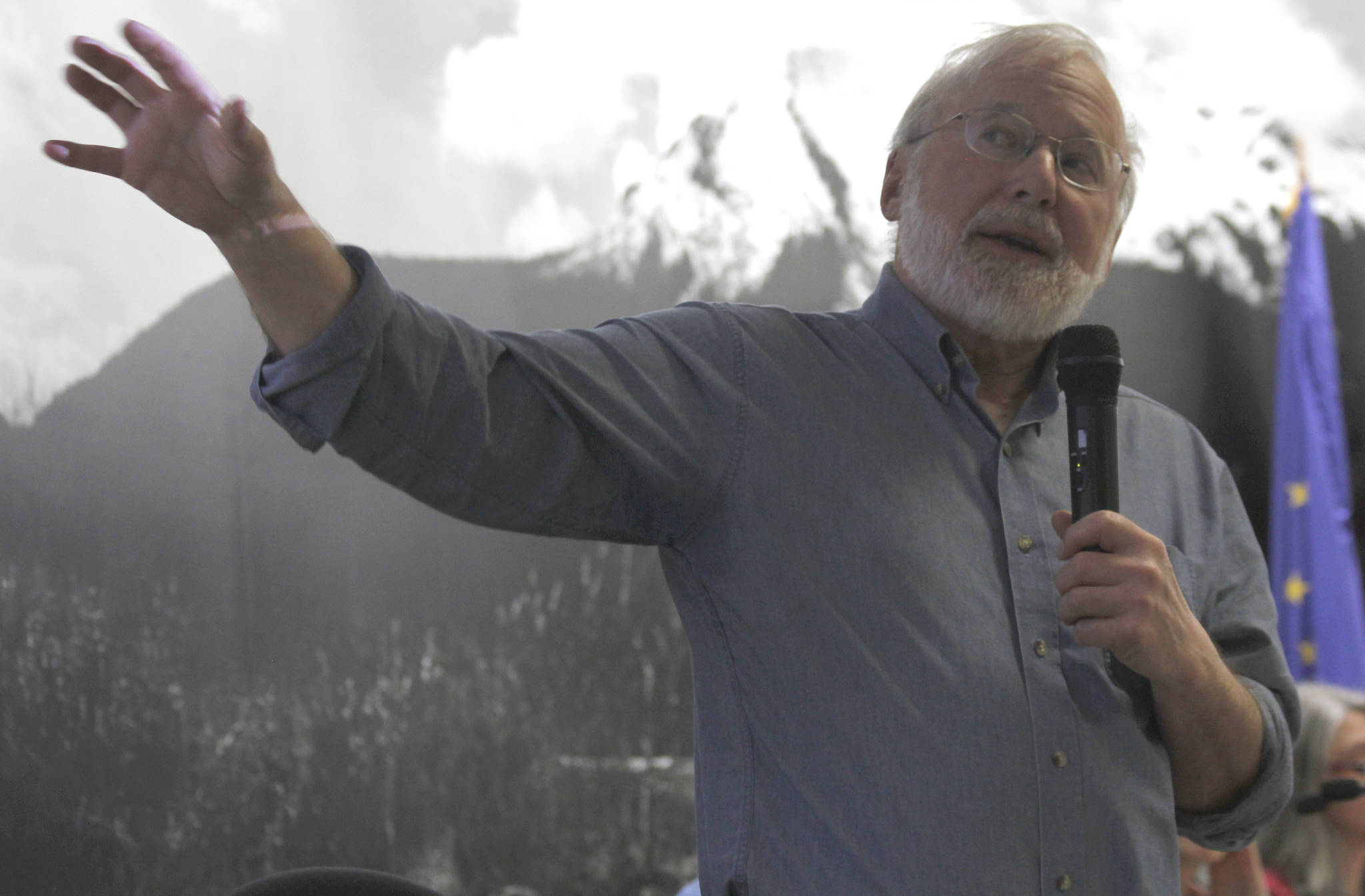City officials are one step closer to officially setting the goal to have Juneau be 80 percent renewable by 2045.
By a unanimous vote Monday, the City and Borough of Juneau Assembly Committee of the Whole moved the Renewable Energy Plan, drafted by the Juneau Commission on Sustainability, to the Assembly. The Assembly (which is comprised of the same voting members as the Committee of the Whole) will vote on this resolution at an upcoming meeting.
The plan has been in the works for more than two years, and follows in the footsteps of the 2011 Juneau Climate Action and Implementation Plan that focused on tracking and reducing greenhouse gas emissions.
Duff Mitchell, the chairman of the JCOS, presented to the Committee of the Whole on Monday about the plan.
“We can and should be a sustainability in the world,” Mitchell said. “For whom much is given, much is required, and we’re really blessed with renewable energy resources here.”
[Commission sets ambitious goal for future of renewable energy in Juneau]
Practically 100 percent of Juneau’s electricity comes from renewable hydropower, so the city is already well on its way to meeting its goals. According to the JCOS, though, fossil fuels supply about 80 percent of the city’s “internal energy,” such as heating buildings and fueling cars and other forms of transportation.
The Renewable Energy Plan suggest using heat pumps for heating and trying to convert to more electric vehicles, among other recommendations.
Heat pumps, which are a more energy-efficient way to heat buildings, transfer heat from outside air, water or ground to heat the inside of a building. Many describe it as the reverse of a refrigerator. Heat pumps have already been installed at a few places in town including the Juneau International Airport and the Mendenhall Valley Public Library.
Assembly member Beth Weldon expressed concern that there didn’t seem to be much of a cost analysis in the plan. Electric vehicles in particular are expensive, and if the city wants to change its fleet of service vehicles and buses to electric cars it will have to spend a great deal of money.
Steve Behnke, the chair of the JCOS Energy Committee, said this plan is meant to serve as a map of sorts for the Assembly as it goes through future budget processes. He also said he hopes community-minded organizations see some of the recommendations and join forces to make them a reality.
“It can pull together people in the community who are interested in figuring out ways to finance energy efficiency or finance and push their heat pumps,” Behnke said.
Though there was no public comment available for the topic at Monday’s meeting, but the Assembly Chambers were packed with more than 50 people in attendance solely for the committee’s discussion of the plan.
Many of them wore stickers supporting the plan and one person had a sign that read, “There is no PLAN-et B.” After the committee’s vote, the room broke into applause.
Assembly member Maria Gladziszewski, who led the charge for the Assembly to adopt a resolution in August to reaffirm its goals from the 2011 plan, said this resolution will only provide a blueprint for the city to move forward. Much of it will be up to the way Assembly members vote to fund (or not fund) the initiatives in the plan.
“It ultimately up to Assembly in the budget process and all those things,” Gladziszewski said. “I think this is reflective of our values, I support moving forward and getting the Commission on Sustainability to go through these things and find out which ones make sense.”
• Contact reporter Alex McCarthy at 523-2271 or alex.mccarthy@juneauempire.com. Follow him on Twitter at @akmccarthy.

